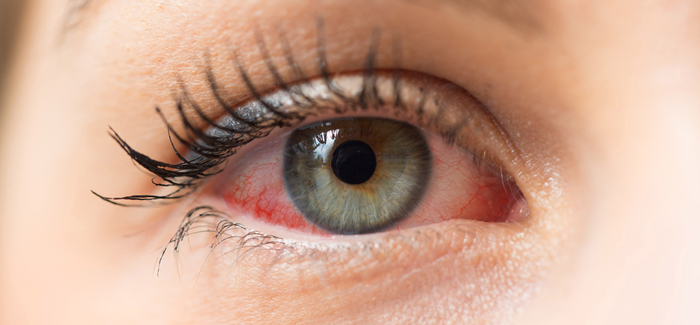Allergies and Your Eyesin Boston, MA

With the arrival of the warm summer months comes the arrival of beautiful summer blooms, lush green grasses, and uncomfortable allergies. Take charge of your summer once again by learning how allergies affect your eyes, and how you can best treat your symptoms and gain relief.
Symptoms
Although allergies can be isolated in the eyes alone, they are often accompanied by a stuffy nose, sneezing, and sniffling, and other nasal allergy symptoms. The most common ocular allergy symptoms are:
- Itching of the eye area
- Redness of the eye
- Burning eyes
- Clear, watery discharge coming from one or both eyes
Triggers and Causes
The triggers and causes of allergies range vastly from person to person. An individual with a pollen allergy from a young age may outgrow it as they get older, while a person who had no allergies for 50 years may develop them suddenly. Although there is no way to tell exactly what allergies you have without a proper allergy test, there are common irritants which may lead to an allergic reaction, including:
- Outdoor allergens, usually from organic matter such as pollen varieties from grass, weeds, plants, and trees
- Indoor allergens that may be circulating around your home or workplace, including pet dander, mold, or dust mites
- Other irritants, including perfume, diesel exhaust or cigarette smoke
Diagnosis
Most of the time, ocular allergies begin when your body’s immune system overreacts or becomes sensitive to something in your environment. These reactions can happen when allergens interact with antibodies in your eyes, causing the cells to respond and release histamine. These histamines, along with other chemicals released during a reaction, cause the small capillaries in your eyes to leak, producing red, itchy, watery eyes.
If you find that your symptoms are ongoing, or are not relieved with over-the-counter medications, you should visit an allergist to ensure that the symptoms truly are an eye allergy and not a disease of the eye.
Treatment and Management
To best manage your seasonal eye allergies, it is best to control your environment when possible.
Outdoor Allergens:
- Avoid going outside during times of high pollen counts, which usually occur during midmorning and the early evening.
- Avoid any air conditioners or window fans that bring outdoor molds and pollens inside.
- Avoid rubbing your eyes. Doing so will only irritate them and worsen your condition.
- Wear some sort of glasses, your prescription pair or sunglasses, when you’re outside to decrease the chance of allergens getting in your eyes.
Indoor Allergens:
- Keep your windows closed when possible. If you’re using an AC unit, keep it clean of dirt, debris, and pet dander.
- Invest in mite-proof covers for your bedding and mattresses. These keep your exposure to dust mites low.
- Use a dehumidifier to keep the humidity in your home low, between 30 and 50 percent. Doing this reduces your exposure to mold.
- Practice wet cleaning (with a damp rag or mop) rather than dry cleaning (with a broom or vacuum) to avoid spreading dust mites or other allergens into the air.
- If you have a pet, keep the air ducts to your room closed if you have central heating or cooling. It is also imperative to wash your hands immediately after you touch a pet to avoid getting allergens in your eyes.
Common treatments for ocular allergies include over-the-counter eye drops or antihistamines. If these do not work for you, contact your healthcare professional for prescription antihistamines or other prescription allergy treatments.
Our team at the Nielsen Eye Center realize that healthy vision is imperative to a healthy lifestyle. Schedule your regular eye check-up with us today by calling 617-471-5665.



